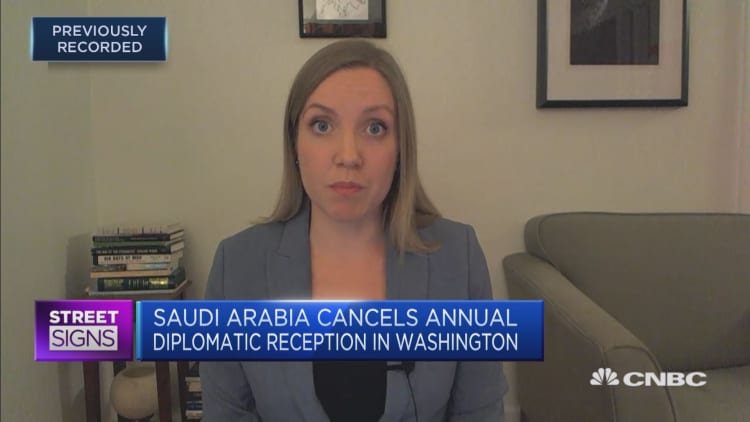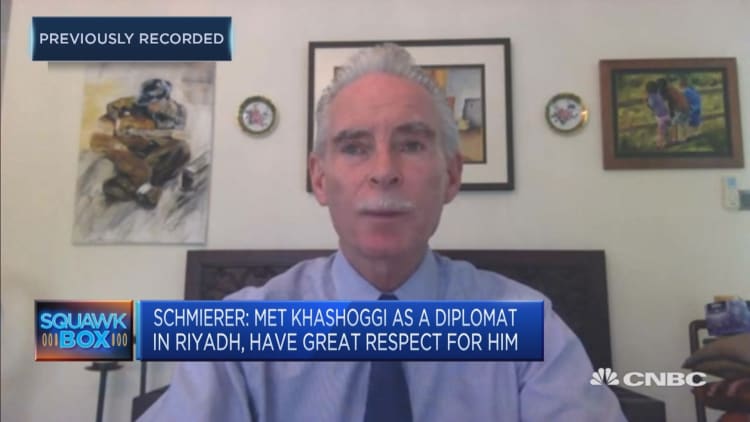
Despite reports suggesting the Saudi Arabian government was involved in the disappearance of U.S.-based journalist Jamal Khashoggi, Washington is likely to prioritize maintaining its relations with Riyadh, according to a think tank expert.
Khashoggi, a Washington Post columnist and critic of powerful Saudi Crown Prince Mohammed bin Salman, vanished two weeks ago after entering the Saudi consulate in Istanbul to retrieve documents. Saudi Arabia has so far denied any wrongdoing.
NBC News reported on Monday that Riyadh is considering a plan to say Khashoggi was killed inside the consulate, potentially pointing to rogue operatives in an interrogation gone wrong.
Nevertheless, U.S. President Donald Trump's administration is likely to continue strengthening its relationship with ally Saudi Arabia despite concerns about Riyadh's potential involvement in the journalist's disappearance, according to Emily Hawthorne, Middle East and North Africa analyst at geopolitical think tank Stratfor.
"I don't think this administration is looking as hard into issues of human rights" compared to strategic alliances with partners that promise "mutual benefit," Hawthorne said, noting that the United States has many ongoing strategic concerns in the Middle East.
Some of America's concerns include Iran, oil markets and arms sales, she added.
The Trump administration has been seen pushing aggressively to take all Iranian oil off the market, and is relying on Saudi Arabia — one of the world's largest oil producers that pumps over 10 million barrels per day — to keep its oil spigots open to curb surging crude.
U.S. Secretary of State Mike Pompeo is meeting Saudi King Salman to discuss the journalist's disappearance.
"Pompeo is not going to parrot exactly what the Saudi's say" but U.S. administration officials are likely to "hold fast to the strategic interests that they have in keeping a very strong relationship with Saudi Arabia," Hawthorne said.
'A Saudi patriot'
Khashoggi was willing to criticize the Saudi royal family, but he was also a patriot working for the betterment of his country and its people, said Richard Schmierer, a former U.S. diplomat to Oman and chairman of the Middle East Policy Council's board.
"(Khashoggi) didn't always agree with the specific reform efforts or specific reform policies that the king is currently pursuing. But I do think he was a committed advocate for reform and he was trying to constructively contribute to the dialogue about reform," Schmierer said. "So in that sense I would say he is very much a Saudi patriot trying to help is government in his people."
"If Jamal is gone that will be a tremendous loss for the Saudi people and for all those ... that wish Saudi Arabia well," he added.
WATCH: Khashoggi was a 'committed advocate' for Saudi reform: Expert

— Reuters and CNBC's Javier E. David, Tom DiChristopher, Patti Domm, and Ted kemp contributed to this report

